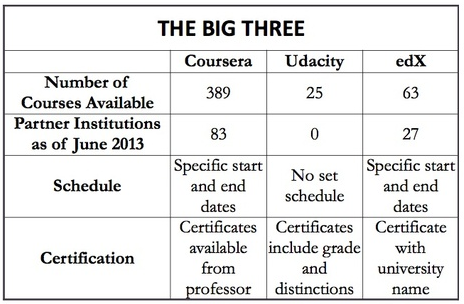It all depends on the classes that you attended. Some are worth listing, some are best not to mention. Here I review of few of these data science curricula, and the impression it can make on hiring managers, depending on your profile, work experience, and strength (or lack of) of these programs.

Three categories of data science programs
Type 1: cheap
The cheap version, is usually based on a monthly subscription model. It typically costs less than $30 per month and gives you access to a wide array of online classes. An example is DataCamp. Topics cover introduction to Python, R, or some algorithms such as regression. Instructors are usually not leaders in their field, after all, who would want to teach these classes and be paid peanuts? An old adage says that if you can’t succeed as a professional in the business world, you write books instead. And if you can’t succeed in writing books, you teach. So the risk here is to have instructors with little business experience. Also, what their teach is NOT data science, despite claims to the contrary: read this article to find out what real data science is. While these programs can be useful for a quantitative professional, say a physicist or industrial engineer, who want to learn more programming skills, it is better to not include them to your resume. Besides, these skills are easy to learn on your own, by reading articles or cheat sheets posted on various websites, for instances, here. And by using platforms such as StackExchange to get your questions answered.
Type 2: expensive
The expensive non-academic version costs more that $15,000 for a two to three months program, usually with onsite classes, and requiring you to pass a test to be admitted. It is critical to check the professional background of the instructors, and the type of projects, platform (software) and data that you will be working on (small, academic-type or enterprise big data?) Also, it is worth checking with former graduates to learn about their experience and how it helped them either getting a job or progress in their career. These programs compete with academic programs offered, sometimes online / part-time, by respected universities. Examples of such programs are are offered by General Assembly and Galvanize. You will find many professionals listing the certificates their earned from these organizations, on their LinkedIn profile. However, I advise not to include them to you resume, despite the temptation to do so after spending so much money.
Type 3: respected
The third category consists of online programs such as Coursera, with high caliber instructors, and low cost or even free. Yet, they don’t provide a full data science education. After all, data science is mostly learned on the job, and sometimes quantitative professionals with no formal data science training have an advantage over people who learned poor data science practices at school, and now need to un-learn them to become efficient in the corporate world. That said, training from Coursera, especially if the instructor is well known, is worth adding to your resume, along with the name of the instructor in question. If you have attended 20 classes and earned 10 (dubious) certificates, it is best to only mention the top two ones. Beyond that, it makes the job candidate look desperate or under-qualified. One training (or as in my case zero as I am a self-learner) is much better in your resume, than a long list of pseudo-diplomas or certificates from questionable institutions. Experience always prevails over education, when looking for a job that is not entry-level. And even if you start from scratch, you might want to combine Coursera classes with some internship.
Other options
An alternative, especially to cheap training, is reading a modern book or notebook. Many come with source code that the author or publisher make available online. Some, even some of the best, are free and self-published. Some are written by top experts in their field, who made so much money that they can now devote their time helping others. For examples, see here. I will go as far as to say that including these books to your resume, creates a better impression to hiring managers, than mentioning a cheap data camp.
I have tried myself to offer an apprenticeship in the past, but due to the very high demand, it is now mostly a self-service program, see here. I may offer a doctorship in data science in the future, for experienced professionals interested in becoming a data science executive, see here for details. Finding great instructors is always a challenge though, because being a top enterprise data scientist, and being a great instructor, require skill sets and personalities that are opposite (not to mention time conflicts), and rarely found in one individual. One way to solve this issue is designing a program that involves both business people, and professors.
Finally, we are now working with Ajit Jaokar, to create an accelerated program to get jump-started with Python and data science. You can check it out here. See also here and here.
To not miss this type of content in the future, subscribe to our newsletter. For related articles from the same author, click here or visit www.VincentGranville.com. Follow me on on LinkedIn, or visit my old web page here.
DSC Resources
